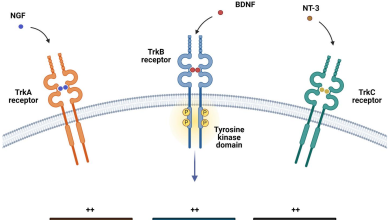How to Handle Depression?

In this article we are going to discuss How to Handle Depression? Depression is a complex mental health condition characterized by persistent feelings of sadness, hopelessness, and a lack of interest or pleasure in activities once enjoyed. It affects millions of people worldwide, cutting across age, gender, and socio-economic backgrounds. The impact of depression can be profound, affecting an individual’s thoughts, behaviors, physical health, and overall quality of life.
How to Handle Depression?
Recognizing depression and understanding its multifaceted nature is the first step towards managing and overcoming it.
1. Recognizing the Symptoms
Symptoms of depression can vary from person to person, but common indicators include persistent sadness, fatigue, changes in appetite and sleep patterns, difficulty concentrating, feelings of worthlessness or guilt, and thoughts of death or suicide. It’s crucial to acknowledge these symptoms early and seek professional help if they persist for more than two weeks. Understanding that depression is not a sign of weakness but a medical condition requiring attention is vital in addressing it effectively.
2. Seeking Professional Help
One of the most important steps in handling depression is seeking professional help. Mental health professionals, including psychologists, psychiatrists, and counselors, offer essential support and treatment. Therapy, particularly cognitive-behavioral therapy (CBT), has proven effective in treating depression. CBT assists individuals in recognizing and challenging negative thought patterns and behaviors, encouraging the adoption of more positive and constructive alternatives. In certain situations, medication might also be recommended to help manage symptoms. Antidepressants can help restore the chemical balance in the brain, making it easier to cope with daily challenges.
Also Check: 10 Best Websites to read Novels
3. Building a Support System
Having a strong support system is essential for anyone dealing with depression. Friends, family, and support groups can provide emotional support, encouragement, and a sense of belonging. It’s important to communicate openly with loved ones about what you’re going through and to seek their understanding and assistance. Joining a support group, either in-person or online, can also provide a sense of community and shared experiences, making it easier to navigate the challenges of depression.
4. Lifestyle Changes
Making positive lifestyle changes can have a significant impact on managing depression. Regular physical activity, for example, has been shown to improve mood and reduce symptoms of depression. Exercise releases endorphins, which are natural mood lifters, and can also help improve sleep patterns and boost self-esteem. Aim for at least 30 minutes of moderate exercise, such as walking, jogging, or swimming, most days of the week.
Diet and nutrition also play a crucial role in mental health. Eating a balanced diet rich in fruits, vegetables, lean proteins, and whole grains can help improve overall well-being and energy levels. It’s also beneficial to limit the intake of caffeine, alcohol, and processed foods.
Sleep is another critical factor. Depression often interferes with sleep patterns, resulting in either insomnia or excessive sleep. Establishing a regular sleep routine, creating a relaxing bedtime environment, and avoiding screens before bed can help improve sleep quality.
5. Practicing Mindfulness and Meditation
Mindfulness and meditation are effective tools for managing depression. These practices involve being fully present in the moment and accepting it without any judgment. Mindfulness can help individuals become more aware of their thoughts and feelings, reducing the tendency to dwell on negative experiences or worry about the future. Meditation can help calm the mind, reduce stress, and improve overall emotional well-being. Incorporating mindfulness and meditation into daily routines, even for just a few minutes, can make a significant difference.
6. Engaging in Meaningful Activities
Engaging in activities that bring joy and a sense of accomplishment can help combat feelings of worthlessness and hopelessness associated with depression. Hobbies, creative pursuits, volunteer work, or learning new skills can provide a sense of purpose and fulfillment. It’s important to set realistic goals and take small steps towards achieving them, celebrating each success along the way.
7. Managing Stress
Stress is a major contributor to depression, and learning to manage it effectively is crucial. Identifying sources of stress and finding ways to reduce or cope with them can help alleviate symptoms. Techniques like deep breathing exercises, progressive muscle relaxation, and yoga are effective for reducing stress and promoting relaxation. Additionally, setting boundaries, prioritizing self-care, and seeking support when needed are crucial steps in managing stress and maintaining overall well-being.
8. Avoiding Substance Abuse
While it may be tempting to turn to alcohol or drugs to cope with depression, substance abuse can worsen symptoms and lead to additional problems. It’s important to avoid using substances as a means of escape and to seek healthier coping mechanisms instead. If substance abuse is already an issue, seeking help from a professional or support group is essential.
Also Check: Top Websites in the World
9. Finding Hope and Positivity
Finding hope and positivity in life is a crucial part of overcoming depression. This can involve focusing on positive aspects of life, practicing gratitude, and developing a more optimistic outlook. Keeping a gratitude journal, where you write down things you’re thankful for each day, can help shift your focus from negative to positive. Surrounding yourself with positive influences and engaging in activities that bring joy and fulfillment can also make a significant difference.
10. Seeking Long-Term Solutions
Dealing with depression is often a long-term process that requires ongoing effort and commitment. It’s important to be patient with yourself and understand that recovery is a gradual process. Developing a comprehensive treatment plan with the help of mental health professionals and sticking to it is crucial. Regular follow-ups with a therapist or counselor can help monitor progress and make necessary adjustments to the treatment plan.
11. Embracing Self-Compassion
Self-compassion means showing yourself the same kindness and understanding that you would extend to a friend. It’s important to acknowledge your struggles without self-criticism and to practice self-care. This can involve setting aside time for relaxation, engaging in activities that bring you joy, and being gentle with yourself during difficult times. Embracing self-compassion can alleviate feelings of guilt and self-blame, fostering a healthier self-image and enhancing emotional well-being.
12. Utilizing Online Resources and Apps
In today’s digital age, a wide range of online resources and apps are available to assist in managing depression. These can include mental health websites, forums, and apps designed to provide support, track mood, offer guided meditations, and provide cognitive-behavioral therapy exercises. Utilizing these resources can provide additional support and tools to help manage depression effectively.
13. Staying Informed
In today’s digital age, a wide array of online resources and apps are available to assist in managing depression. Reading books, articles, and research studies on depression can provide valuable insights and strategies for coping. Attending workshops, seminars, or support groups can also offer opportunities to learn from others’ experiences and gain new perspectives.
14. Encouraging a Supportive Environment
Creating a supportive environment at home and work can significantly impact managing depression. This can involve open communication with family members and colleagues about your condition and needs, creating a positive and understanding atmosphere. Encouraging a culture of mental health awareness and support in your community can also make a difference.
Conclusion
Handling depression requires a multifaceted approach that includes seeking professional help, building a support system, making lifestyle changes, and developing healthy coping mechanisms. It’s important to recognize that recovery is a journey, and it’s okay to seek help along the way. By taking proactive steps and utilizing available resources, individuals can manage depression effectively and improve their overall quality of life. Remember, you’re not alone, and with the right support and strategies, it is possible to overcome depression and lead a fulfilling life. So, I hope now you have understood How to Handle Depression.








